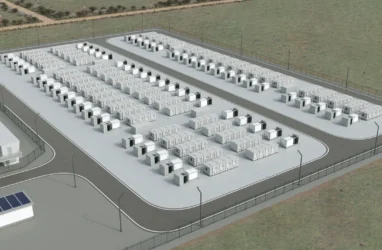Feed aggregator
Huge solar and battery project to help propel South Australia towards 100 pct net renewables and beyond
The post Huge solar and battery project to help propel South Australia towards 100 pct net renewables and beyond appeared first on RenewEconomy.
How long could the Santorini 'seismic crisis' last?
Habitat restoration is a long-haul job. Here are 3 groups that have endured
Humpback whale song and human language are more similar than you might think. Here’s why
Researchers have found a pattern indicating certain ‘words’ are used more often than others – but humans won’t be speaking whale any time soon
- Follow our Australia news live blog for latest updates
- Get our breaking news email, free app or daily news podcast
Humpback whale song is structured in a similar way to human language – with shorter sounds used far more often than more complex ones – a structure which helps infants quickly learn how to communicate from their elders in both species.
Across languages and whale song, some words, or word-like elements, are used frequently while others are infrequent. They follow a pattern known as “Zipfian distribution”, where the most used word in a language (like “the”) is used about twice as often as the second most common word, and three times as frequent as the third most common word and so on.
Sign up for Guardian Australia’s breaking news email
Continue reading...CORRECTION – EU plans to exempt 80% of companies from CBAM compliance
Analysts expect record voluntary carbon credit retirements in 2025, excluding CORSIA demand boost
Starmer pledges to ‘build, baby, build’ as green groups criticise nuclear plans
Greenpeace says PM has ‘swallowed industry spin whole’ after plans unveiled to expand in England and Wales
Keir Starmer has channelled his inner Donald Trump and promised to “build, baby, build” in his push for more nuclear power stations, despite warnings from environmental groups about the industry’s record for soaring costs and long delays.
A day after the prime minister unveiled his plans to revamp planning rules to bring in a series of small modular reactors (SMRs) across England and Wales, Greenpeace said Starmer had “swallowed the nuclear industry spin whole”, and Friends of the Earth described the plans as “overblown, costly hype”.
Continue reading...Brazil’s Pantanal has more than strong potential for carbon projects -report
INTERVIEW: EU’s clean heating transition ‘not on track’ for ETS2, expert says
Council set to drop Essex wildlife site from housing plan after eight-year fight
Middlewick Ranges in Colchester considered to be of national importance for nightingales and acid grassland
A council is proposing to remove the second-best place for nightingales in the UK from its local plan for 1,000 new homes, in a win for community campaigners and environmentalists.
Middlewick Ranges, a former Ministry of Defence firing range on the southern edge of Colchester, is set to be dropped from the city council’s allocated housing sites after councillors heeded a growing array of ecological evidence highlighting its national importance for nature.
Continue reading...The Observer view on Heathrow runway: Rachel Reeves is flying in face of dire climate threat | Observer editorial
On almost every level the chancellor’s decision to expand the London airport looks naive, if not foolish
For 20 years, politicians, industry leaders and campaigners have fought in courts, parliament and public meetings over the idea of building a new runway for Heathrow. For some, a third runway would not only boost passenger numbers at the airport but would be a symbol of the country’s determination to seek economic regeneration. For others, it would demonstrate, in vivid terms, our complete failure to understand the grim, global threat posed by further increasing carbon emissions.
Last week, Rachel Reeves chose to enter the fray. Remarkably, for a supposed green chancellor, she elected to back the project and seek the expansion of Heathrow to raise its annual passenger capacity by 50% to about 140 million. “A third runway at Heathrow would unlock further growth, boost investment, increase exports and make the UK more open and more connected,” she claimed. It was a bold move. It is unlikely history will view it as a sensible or justifiable one, however. On almost every level – political, local or environmental – her decision looks naive, if not foolish.
Continue reading...



